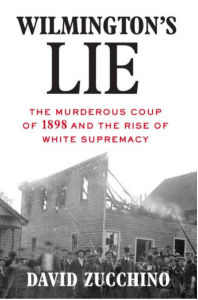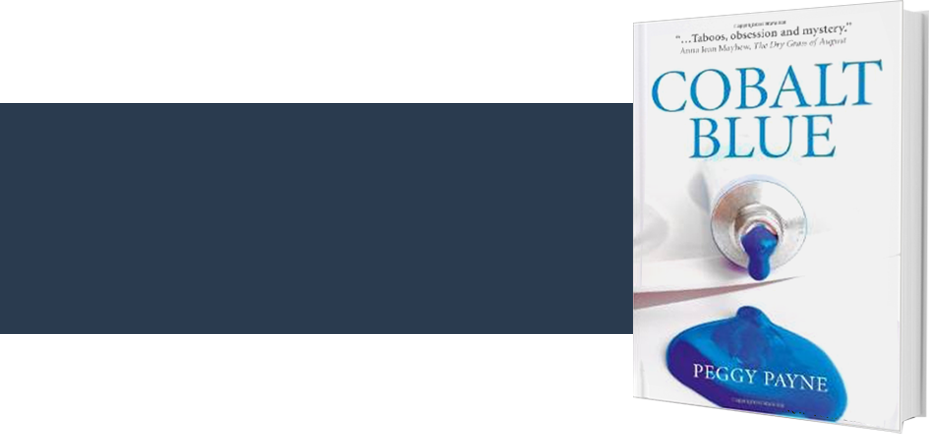An Old Shame That Doesn’t Feel Old
Terrible things happened a while back in my North Carolina hometown, Nicholas. I just read more and learned a lot I hadn’t known. My reaction is especially raw and personal because of how much I love the town and feel part of its history. It’s an old shame that doesn’t feel old; I guess that’s the nature of shame.
I Wanted to Hide My Eyes

I’d dreaded and even thought I might avoid reading the book–Wilmington’s Lie. I didn’t want to feel the pain. But a friend (since first grade), another Wilmington native, composer Meira Warshauer, asked me to please read it. And I even slightly know the writer–Pulitzer winner David Zucchino, who was a reporter in Raleigh when I was. Finally I read it and am going over and over it in my mind, comparing the safety and comfort I felt growing up there with the threat that has hung over black people there, the chilling effect that has to have lingered.
That picture on the book cover is the white mob. Behind them is the black newspaper’s office which, as you see, they burned.
So Close and Personal
Of course I’m appalled by the killing of George Floyd in Minneapolis and similar atrocities in so many other cities. By the fact of them happening and happening now. But Wilmington!–such a beautiful place between river and ocean, full of good memories and people I love–I want Wilmington to have known better.

It was not so. Instead Wilmington was the setting for a historical worst: the only violent government take-over ever of an American government. In 1898 white supremacists massacred sixty or more black people and ran more than 2,000 out of town. They did it because the population was 60% black, including prosperous black business people and professionals. The white instigators didn’t want blacks elected to office.
A Public Secret
It was a secret kept for about 100 years, passed off when mentioned as a “race riot,” as if blacks had started it. Not true: it was a slaughter carefully planned and set in motion by some of Wilmington’s leading citizens, first spurred by then-publisher of the Raleigh News & Observer.
I know the grandchildren of several of the major players. The whole thing just hits too close to home. My personal connections make the horror real in a hyper-vivid and intimate way.
I was in my twenties before I ever heard any mention of it. I should have asked questions then. I didn’t. The date of 1898 seemed somewhere between the Pleistocene and the Ice Age, which is of course no excuse for not finding out more. Now I’m old enough to see that these events are pretty recent, in the age of grandparents. And that black families alive now lost legacies that would have been theirs. All of this should have been in the public schools’ required course in North Carolina history.
I did see the report that the state commissioned which was made public in 2006. I knew facts, but Wilmington’s Lie delivered moment-by-moment experience and how it grew from wide-spread pervasive racism across the state.
What to do now?
My friend Meira has organized a Zoom meeting between nine students in our high school graduating class at New Hanover and about that many who graduated the same year from Williston, the town’s black high school. We all went to school there in the days of rigid segregation, which some of us, including me, blindly failed to question at the time. The idea for the meeting is to make a connection, meet some of the people we missed out on, hear about what life was like for them in that segregated time and violence-scarred place, and talk about what any of us can do now that would help.
I’m glad I read the book, glad I’m going to be in on that conversation, and grieved by the violence, what led to it and what it caused.
Also, a minor but painful reaction, I feel sadly protective of all that’s good about my hometown.
Peggy
Categories: Uncategorized
Tags: 1898 white supremacists, atrocities, black business people, black newspaper, chilling effect, David Zucchino, failed to question, killing of George Floyd, lost legacies, Meira Warshauer, Minneapolis, nature of shame, New Hanover, news & Observer, race riot, rigid segregation, violent government take-over, what to do now, white mob, Williston, Wilmington's Lie



Comments
Thank you, Peggy Payne, for every bit of that commentary.
Thanks for the encouragement, Rosemary. I appreciate it.
I have only a little idea of what happened there. It sounds appalling. Perhaps I should read the book, although I don’t have any urge to read something that will upset me.
I procrastinated quite a bit myself, Kenju.
I, too, am struggling with this and other like incidents. Though not born in North Carolina, I grew up in Chapel Hill, Burlington and spent my high school years in the mountains of Western North Carolina, one of the most beautiful places on earth. I graduated from UNC-CH and did graduate work there. I thought I had no illusions about NC history but clearly I do. I’ve lived in California since 1971. I’m beginning to understand that no area of the country has the moral high ground on this issue. We have all missed the mark on this one and the first step is to recognize it, name and claim it, no matter how painful that is.
You’re right about no region owning the moral high ground, Karen. Though I don’t want to use that fact to unload any of my own sense of responsibility to make things better. Thanks for your thoughts about this.
Peggy,
Thank you for this. I wish I had known about that zoom meeting and would love to hear what the black experience was in Wilmington in the 60s. I too knew nothing about the 1898 massacre until sometime in the 90s. I knew no black people in Wilmington except our maid and met none until college. I recently watched “Wilmington on Fire” a video about the massacre and have read about it, but must read this book.
Racism is everywhere of course even here in Western Massachusetts in the adjacent town Great Barrington which was the birthplace of W.E.B. Du Bois. The town refused to honor its most distinguished citizen until recently because of his flirtation with communism and his move to Ghana a few years before his death.
The slave trade was plied in nearby Rhode Island as chronicled in the video “Traces of the Trade”.
My wife Lee works on a committee “Becoming the beloved Community”, a program of the Episcopal Diocese of Western Massachusetts. Even in our community of faith it is not an easy subject.
But back to ILM. I’ve had some contact mostly though facebook to old classmates and others there. While not universal, it is clear that many are clueless about persistent racism. I could never go back there I am sorry to say, even though as I have already said there is plenty of racism here up North.
Thank you for writing about this and again thanks to you and Meira for your amazing Zoom meeting!
I’m glad to hear from you, John, and sorry to hear that you wouldn’t come back this way. At the same time, I don’t see why everyone black in Wilmington didn’t find a way to get to Ghana or somewhere else as fast as possible. But then your home is your home and who wants to be uprooted. Yes, do read Zucchino’s book. I think the subject isn’t easy anywhere; even people in basic agreement can so easily disagree on what to do, what to say, how to say it… It’s a problem that feels to me metastasized rather than encapsulated, to use a rather grim metaphor.
The meeting with Williston students is still to come, but Meira (formerly Maxine) kept it to a medium-sized group this time, thinking that a large one would make a conversation difficult. She has been working on this for a long time; I think it’s an idea that might well spread.
Great post, Peggy!
Philip Girard wrote a wonderful novel, “Cape Fear Rising,” about the events in Wilmington 1898. I don’t think it’s received anything like the attention it deserves. Maybe now it will become a bit better known?
I’m glad you mention that book, David. Thank you and thank you!
Thank you for this commentary. I also grew up in Wilmington, in Oleander, among descendants of the white instigators of the 1898 massacre. The names I read in Wilmington’s Lie were so familiar – many were still prominent families in the 1960’s and 70’s. I was horrified when I began to learn about this history. It was never mentioned in my schooling. My parents’ generation did not speak of this. I love Wilmington but these feelings are mixed with shame and sadness.
We probably lived near each other, Betty. I grew up on Mimosa Place, a block over from Oleander. The familiar names are one of the very disturbing things about all this. I certainly don’t blame descendants for what their forebears did–it’s also true that they have been quite privileged compared to the victims or their descendants, but then so have I.
Horrifying ! I’d heard just a phrase of a book review on NPR, but didn’t grasp the immensity of these violent and cruel crimes. I haven’t words for it – what you told me while reading the book and this blog brought me gasping for breath again and again at the horror, and imagining myself as the victims. We aren’t personally responsible for these atrocities, bur we are personally responsible to do everything we can to make them known and understood – Never Again!
Yes, two different meanings of the word “responsible.” When I say it, I usually mean: who did it? or it is or isn’t my fault. But the other kind of responsibility is evenly distributed; we all have a lot.
I am moved by your strong reaction, Bob.
I had the same reaction Peggy. Amazon Prime has the movie about it called
“Wilmington on Fire” which drive s the horror even deeper. I suspect we never
heard about if from our parents because they believed the secret should never be spoken about especially since it involved so many prominent white men of our town.
I truly believe that the “truth will set us free” as it gives the possibility of openness
between the races and offering more choices of forgiveness and healing.(Love your blog)
I’m so glad to see you here, Barbara. I hope all’s well with you in this virus season. I agree with you about the truth, difficult though it is. I may not rush to see that movie, though: not sure I’m ready for the horror to be driven deeper. I’m really glad I read Wilmington’s Lie. I think that my parents may not have known what really happened in 1898. Maybe I just want to believe that. They were pretty progressive on race, though; makes me proud when I think back. I wonder what the world is going to look like a year or five from now. (Glad you like my blog!)